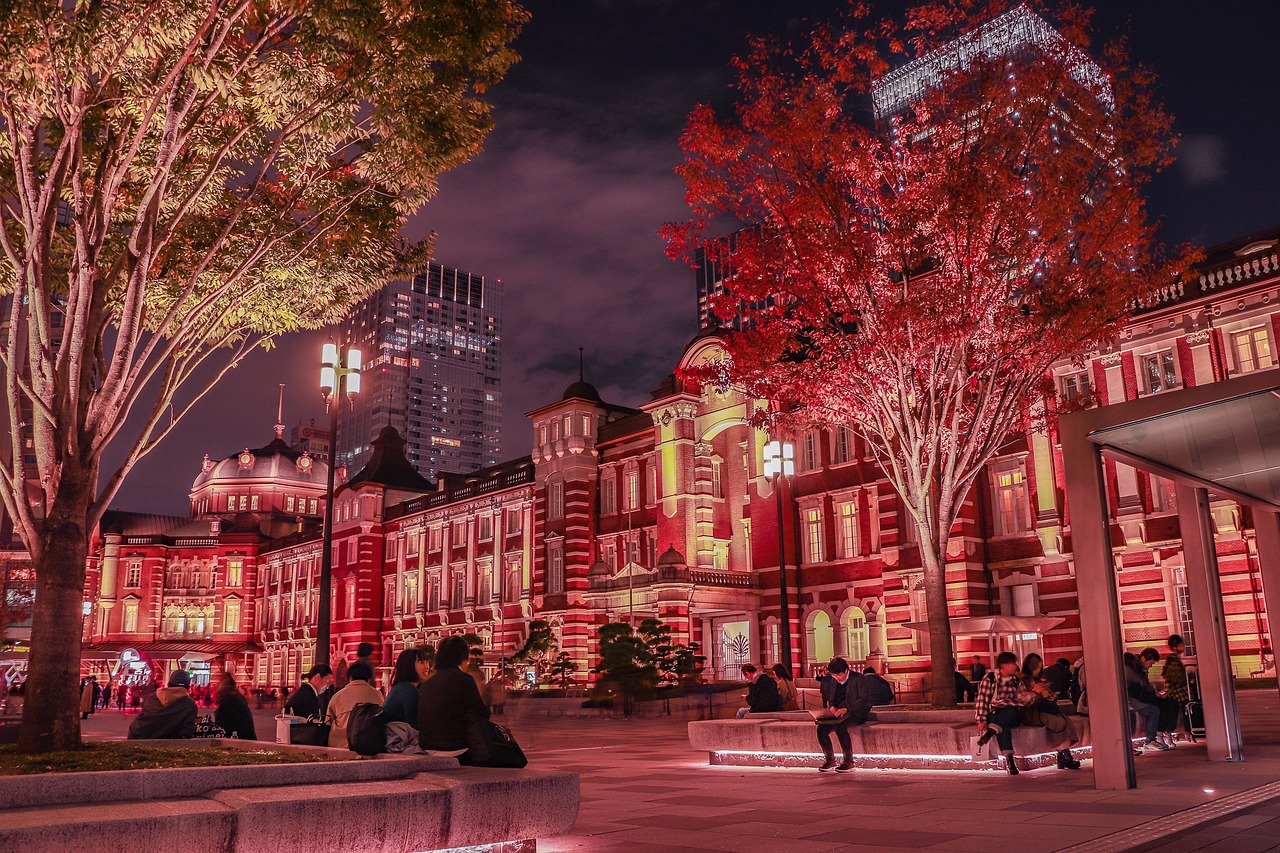Buying a House in Japan as a Foreigner: Real Estate Investment and Living Guide
Introduction – Why Foreigners Consider Buying a House in Japan
Japan has long attracted foreigners not only as a travel destination but also as a potential place to live, retire, or invest. Compared to other global property markets, Japan offers several unique advantages:
- Stable society and economy – Japan is known for its safety, low crime rates, and reliable infrastructure.
- Affordable housing compared to other global cities – While Tokyo is expensive by Japanese standards, property prices are still lower than those in New York, London, or Hong Kong.
- Lifestyle appeal – Foreigners often fall in love with Japan’s blend of modern convenience and deep cultural heritage. Owning a home can make long-term living or frequent visits more comfortable.
- Investment opportunities – With inbound tourism recovering and rental demand remaining strong in certain areas, real estate can be a stable long-term investment.
Foreign buyers usually fall into three categories:
- Personal use – living in Japan long-term, retirement, or as a second home.
- Investment – purchasing rental properties or apartments for income.
- Vacation or resort homes – especially in Hokkaido, Okinawa, or near ski resorts.
This guide will cover the key aspects of buying property in Japan as a foreigner, from legal rules to financing, popular areas, and potential risks.
Chapter 1: Legal Framework – Can Foreigners Buy Property in Japan?
One of the first questions foreigners ask is: “Am I even allowed to buy real estate in Japan?” The answer is yes.
Property Ownership Rules
- There are no legal restrictions on foreigners buying property in Japan.
- Both land and buildings can be owned outright, regardless of nationality or residency status.
- Foreigners can also buy multiple properties without restriction.
This openness makes Japan unusual compared to many Asian countries (e.g., Thailand, Indonesia) where land ownership is restricted for non-citizens.
Freehold vs. Leasehold
- Freehold (所有権 shoyuken): Full ownership of the land and building.
- Leasehold (借地権 shakuchiken): You own the building but lease the land, often under a 30–70 year contract. Leasehold properties are cheaper but have complications when the lease expires.
Types of Property Foreigners Commonly Buy
- Condominiums (mansions) in major cities like Tokyo and Osaka.
- Single-family homes in suburban or regional areas.
- Vacation homes in ski or beach resort areas.
Legal Process
- Contracts and official documents are in Japanese, requiring a licensed real estate agent and often a translator.
- A judicial scrivener (司法書士 shihō shoshi) registers the transaction with the Legal Affairs Bureau.
- Residency in Japan is not required to own property.
In short, foreigners face the same legal process as Japanese buyers, but language and administrative hurdles are the main challenges.
Chapter 2: Financing and Mortgages for Foreign Buyers
While anyone can legally buy property, financing is a more complicated issue.
Cash vs. Mortgage
- Many foreign buyers purchase in cash, especially investors and second-home buyers, since mortgage approval can be strict.
- Cash purchases are smoother and faster, but they require significant liquidity.
Requirements for Mortgages
Japanese banks generally lend to foreigners only under certain conditions:
- Visa status – Long-term work visa, permanent residency, or spouse visa greatly improve approval chances.
- Stable employment – Proof of regular income in Japan.
- Credit history – Japanese credit record is preferred.
- Age limit – Most banks require repayment by age 75–80.
Banks and Lenders
- Japanese megabanks (Mitsubishi UFJ, Mizuho, SMBC): Offer mortgages but usually require permanent residency.
- Regional banks: Sometimes more flexible, especially in areas with high foreign populations.
- Foreign banks in Japan (e.g., HSBC, Citi): Occasionally provide financing for non-residents, but often with higher interest rates.
Interest Rates
- Japan is famous for extremely low mortgage rates, often under 1%.
- Loans are typically variable or fixed for a certain period (e.g., 10 years).
Alternatives
- Some foreigners use home country financing, borrowing against overseas assets and paying cash in Japan.
- Developer financing may also be available for new apartments marketed to foreigners.
In summary, financing is possible but usually limited to foreigners who live and work in Japan long-term.
Chapter 3: Popular Areas for Foreign Buyers
Where do foreigners typically buy property in Japan? It depends on whether the goal is living or investment.
Tokyo – Global City Living
- Minato, Shibuya, Shinjuku, and Meguro are top choices for expats.
- High-end apartments near Roppongi, Hiroo, and Azabu attract diplomats and executives.
- Central Tokyo offers liquidity (easy resale) and strong rental demand, though prices are high.
Yokohama and Kawasaki – Close to Tokyo, More Space
- Popular with families and professionals who want easier commutes and larger apartments.
- Yokohama’s international schools and cosmopolitan atmosphere make it attractive for expat families.
Osaka and Kyoto – Cultural and Economic Hubs
- Osaka appeals to investors due to strong rental demand and a growing international business presence.
- Kyoto is more lifestyle-oriented, with buyers attracted to its cultural heritage. Some also invest in machiya (traditional townhouses).
Hokkaido and Okinawa – Resort and Vacation Properties
- Hokkaido (Niseko): Ski resorts attract wealthy investors from Australia, Singapore, and Hong Kong.
- Okinawa: Beachfront properties are popular for vacation homes.
Price Ranges (approximate, 2020s market)
- Central Tokyo luxury condo: ¥100–200 million+ ($700k–1.5M USD)
- Suburban Tokyo family home: ¥40–70 million ($300k–500k USD)
- Regional city apartment: ¥20–40 million ($150k–300k USD)
- Resort property: Highly variable, from ¥10 million rural houses to ¥200 million luxury chalets
Foreigners often balance investment logic with lifestyle desires. For some, living near international schools and workplaces is most important. For others, it’s about rental yield or vacation value.
Chapter 4: Investment Perspectives – Is Real Estate in Japan Profitable?
Foreign investors often ask whether buying property in Japan is a sound financial decision. The answer depends on the purpose—rental yield, long-term appreciation, or personal use.
Stability of the Market
Japan’s real estate market is known for stability rather than explosive growth. Unlike rapidly fluctuating markets in other parts of Asia, property values in Tokyo and other major cities tend to move gradually.
Rental Yields
- Tokyo: Typical gross rental yields range between 3–5%. Central luxury apartments often generate lower yields but attract stable tenants.
- Regional cities: Yields may reach 6–8%, but risks are higher due to declining populations and weaker rental demand.
- Vacation rentals: Ski resorts like Niseko or Hakuba may provide high seasonal income, but depend heavily on tourism trends.
Inbound Tourism and Airbnb
Japan was one of the world’s top tourist destinations pre-2020, and inbound tourism is recovering quickly. Many investors looked to Airbnb and short-term rentals as high-yield opportunities. However:
- Strict minpaku (民泊) laws now regulate short-term rentals.
- Owners must register, and rentals may be limited to 180 days/year in some areas.
- Hotels and ryokan operators lobbied for stricter rules, so compliance is crucial.
Future Outlook
- Population decline: Japan’s shrinking population creates long-term downward pressure, especially in rural areas.
- Urban demand: Tokyo, Osaka, Nagoya, and Fukuoka are expected to remain strong due to concentration of jobs and infrastructure.
- Foreign demand: Increasing numbers of international students, expats, and retirees ensure steady rental demand in key cities.
Exit Strategy
Foreign investors must plan ahead:
- Resale: Liquidity is highest in Tokyo and lowest in rural areas.
- Inheritance/transfer: Japanese inheritance and gift taxes can affect future planning.
- Currency risk: Yen appreciation or depreciation impacts foreign investors’ returns.
Overall, real estate in Japan is best viewed as a stable, long-term asset, not a quick-profit market.
Chapter 5: Step-by-Step Process of Buying Property in Japan
Buying a house in Japan involves several steps.
Step 1: Choose a Real Estate Agent
- Look for foreign-friendly agencies with English-speaking staff.
- Licensed agents provide a “重要事項説明書” (Explanation of Important Matters) before contracts.
Step 2: Property Search and Viewing
- Online portals (https://realestateguide.jp) help start the search.
- In-person viewings are important—photos can be misleading.
Step 3: Offer and Agreement
- Submit a written offer (kaitsuke shōsho).
- Once accepted, both parties sign a purchase agreement and pay a deposit (手付金 te-tsuke-kin), usually 5–10%.
Step 4: Final Payment and Handover
- The balance is paid on closing day.
- A judicial scrivener registers ownership with the Legal Affairs Bureau.
- The keys are handed over once registration is complete.
Step 5: Post-Purchase Matters
- Arrange for utilities, insurance, and management fees.
- If renting out, register with local tax authorities.
The process is relatively transparent, but everything is in Japanese, so professional support is essential.
Chapter 6: Taxes, Costs, and Maintenance
Foreign buyers must budget for more than just the purchase price.
Initial Costs
- Brokerage fee: up to 3% of purchase price + ¥60,000.
- Registration & judicial scrivener: varies, often ¥200,000–¥400,000.
- Stamp duty: depends on contract size, typically ¥10,000–¥100,000.
- Real estate acquisition tax: levied a few months after purchase, about 3–4% of assessed value.
Ongoing Costs
- Fixed asset tax: 1.4% of assessed value annually.
- City planning tax: up to 0.3% in urban areas.
- Management fees: for condominiums, typically ¥10,000–¥30,000 per month.
- Repair reserve fund: additional ¥10,000–¥20,000 monthly.
Maintenance and Renovation
- Japanese homes depreciate faster than in many countries, with values dropping significantly after 20–30 years.
- Renovation can extend usability and value, especially for traditional houses.
Inheritance and Gift Taxes
Foreigners inheriting property in Japan may be subject to Japanese inheritance tax, depending on residency and property location. Professional advice is strongly recommended.
Chapter 7: Risks and Challenges for Foreign Buyers
Despite the opportunities, there are challenges.
Currency Risk
If your income is in USD, EUR, or another currency, yen fluctuations can impact affordability and returns.
Language Barrier
Contracts, negotiations, and tax filings are all in Japanese. A bilingual agent or translator is critical.
Financing Difficulties
Without permanent residency or stable employment in Japan, mortgage approval is unlikely. Cash purchases are more realistic.
Depreciation
Unlike in the West, Japanese homes lose value quickly. Land retains value, but buildings are often considered worthless after several decades.
Rural and Regional Risks
Some areas face rapid depopulation, leading to “akiya” (abandoned houses). Cheap property may be hard to rent or resell.
Conclusion – Should You Buy a House in Japan?
For foreigners, buying a house in Japan can be both a lifestyle choice and an investment opportunity.
- Best suited for:
- Long-term residents or families who want stability.
- Investors focused on rental income in major cities.
- Buyers seeking vacation properties in resorts.
- Caution needed for:
- Short-term speculators hoping for fast appreciation.
- Buyers considering rural properties with low demand.
- Anyone without professional legal and tax support.
Ultimately, owning real estate in Japan offers unique advantages—affordability compared to other global cities, cultural richness, and stable rental demand in urban areas. With careful planning, reliable partners, and realistic expectations, foreigners can successfully navigate Japan’s property market and enjoy the benefits of homeownership in one of the world’s most fascinating countries.

